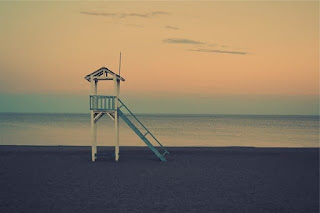Atheism is an answer to a very specific question (i.e., the question of whether one believes in gods). As such, it tends to be a rather limited portion of what we might call a worldview. This had led some atheists, correctly I believe, to assert that atheism by itself is rarely sufficient material from which to construct a worldview, a philosophy, an ideology, or anything of the sort.
There is a certain emptiness in atheism in the sense that it provides no answers to many of life's most important questions. For example, atheism tells us nothing about how one should live one's life. On this point, I can find agreement with some of the Atheism+ supporters in that I can see why some people would say, "Great, we're atheists. Now what?" I certainly understand the appeal of wanting to go "beyond atheism."
Many atheists experience a sense of freedom after they have crawled out from under the weight of theistic superstition. We realize that we were indoctrinated into a set of irrational beliefs and that much of the religious culture which surrounds us is detrimental to human progress. Many atheists embrace their responsibility to make meaning and set about the task of doing so. Some may end up piecing together a highly idiosyncratic worldview from their search for truth. Others find that an existing secular ideology (e.g., secular humanism) provides an ideal alternative to a theistic worldview and fits them as well as anything they might come up with on their own.
The point is that most atheists do not seem to reach the point of atheism and then stop. "I'm an atheist, and that's all there is to me" is not something we expect to hear. Atheism is part of someone's identity, but it is rarely the whole of someone's identity. There isn't enough substance to it.
The atheist has answered the question of gods, realizing that god-belief is not going to be a part of his or her worldview. So what does the atheist believe? This is where the freedom comes in and where you'll see so much diversity. We've got liberal atheists who devote themselves to social justice, conservative atheists who are far more interested in advocating personal responsibility. We've got atheists who embrace feminism, humanism, libertarianism, or other ideologies of their liking. While there may be a certain emptiness in atheism, that's okay because most atheists do not allow themselves to be constrained by it. There is more to most atheists than atheism.
